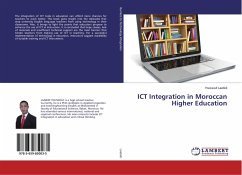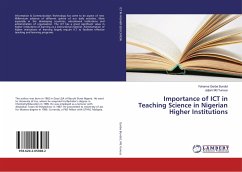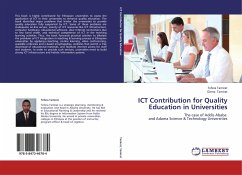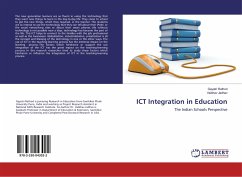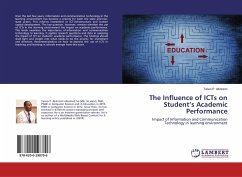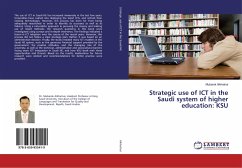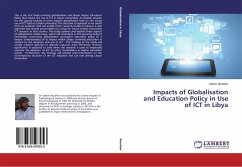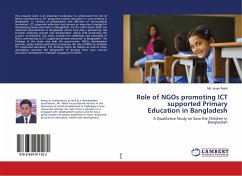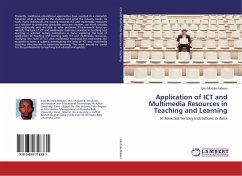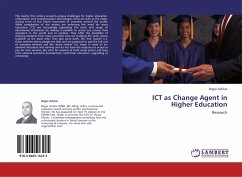
ICT as Change Agent in Higher Education
Research
Versandkostenfrei!
Versandfertig in 6-10 Tagen
32,99 €
inkl. MwSt.

PAYBACK Punkte
16 °P sammeln!
The twenty first century presents unique challenges for higher education. Information and Communication Technologies (ICTs) are seen as the major driving force of the future economies of countries around the world. While complexities of the society are enforcing the need for more education, ICTs are increasingly expanding the reach and range of educational institutions by making it possible to access any course from anywhere in the world and at anytime. They offer the possibility of drawing students from many countries who are studying the same course together at the same time. They also serve...
The twenty first century presents unique challenges for higher education. Information and Communication Technologies (ICTs) are seen as the major driving force of the future economies of countries around the world. While complexities of the society are enforcing the need for more education, ICTs are increasingly expanding the reach and range of educational institutions by making it possible to access any course from anywhere in the world and at anytime. They offer the possibility of drawing students from many countries who are studying the same course together at the same time. They also serve both, the 'free market' (i.e. those markets where people are able and are prepared to pay the full cost of accessing services) and the 'social market' (i.e. those in need of on-demand education and training and do not have the resources to access or pay for such services, but who for reasons of both social justice and long term national economic development, need basic education, upgrading or retraining).



